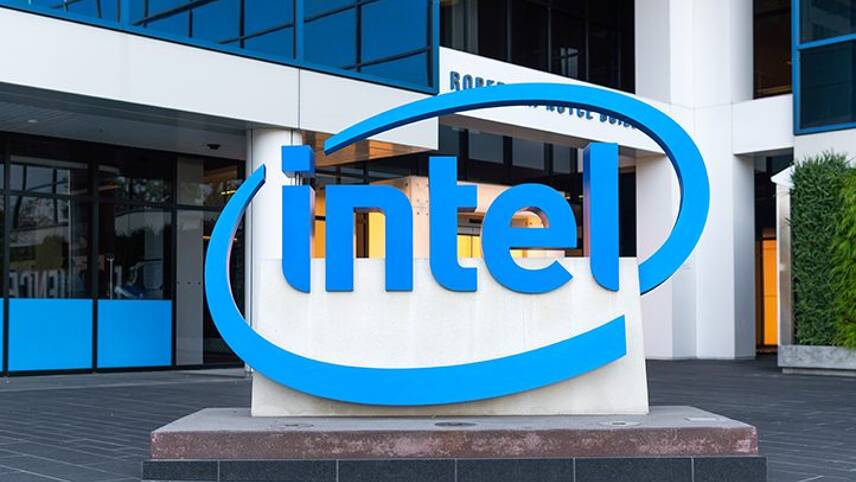Register for free and continue reading
Join our growing army of changemakers and get unlimited access to our premium content

The company has set interim 2030 targets
Intel’s net-zero target covers Scopes 1 and 2, with a timescale to reach the ambition by 2040. The new goal includes interim targets for 2030, including achieving 100% renewable electricity usage and investing $300m at its facilities to achieve 4 billion cumulative kilowatt-hours of energy savings.
Additional 2030 targets include building new facilities that are certified to relevant green standards in the US, Europe and Asia and launching a cross-industry R&D programme on green chemicals.
Intel will use “credible” carbon offsets to reach net-zero after all decarbonisation efforts have been exhausted.
“The impact of climate change is an urgent global threat. Protecting our planet demands immediate action and fresh thinking about how the world operates,” Intel’s chief executive Pat Gelsinger said.
“As one of the world’s leading semiconductor design and manufacturing companies, Intel is in a unique position to make a difference not only in our own operations, but in a way that makes it easier for customers, partners and our whole value chain to take meaningful action too.”
Intel has also committed to partner with the supply chain on Scope 3 initiatives, in a bid to reduce emissions by 30% by 2030, with emissions related to platform designs for clients to also be reduced by 30%.
In 2020, the company unveiled 10-year targets through to 2030, committing to achieving net-positive water use, being powered by 100% renewables and launching the “most sustainable and energy-efficient PC in the world”.
Intel’s cumulative greenhouse gas emissions over the past decade are nearly 75% lower than they would have been in the absence of investments and action.
Intel has also confirmed plans to collaborate with industry and policymakers to explore the role of technology in reducing emissions from high-impact sectors. A joint report produced by the GSMA and the Carbon Trust found that mobile technology use enabled a global reduction in emissions of more than 2,100 million tonnes in 2018 – savings that were almost 10 times greater than the global carbon footprint of the mobile industry alone.
Electrolux
Speaking of firms in the sector, Electrolux, parent company of AEG and Zanussi, has revealed that it has exceeded its sustainability goals for a second consecutive year.
Electrolux reduced its absolute scope 1 and 2 greenhouse gas emissions by 78% compared to 2015, placing the company four years ahead of schedule on its science-based target to deliver an 80% reduction by 2025.
Electrolux UK & Ireland General Manager, Luke Harding, said: “The sustainability framework guides our journey to achieve a ‘Better Company, Better Solutions and Better Living’ within society and allows us to become climate neutral throughout our value chain by 2050.
“Our focus and commitment to this has put us four years ahead of target in reducing our greenhouse emissions in operations and we will continue to build on this fantastic result to pioneer sustainability in the UK.”


“Intel targets net-zero emissions by 2040 through $300m energy savings drive”.
Good, but ‘Net zero policy’ is not really good enough. We really need to be in a virtuous circle of ‘Renewable Energy surplus’, where our ‘supplies’ and manufacturing are all carried out using renewable energy.
“The Concept of a Renewable Energy Virtuous Circle, CREVC.”, or CREVCNOFF
NO Fossil fuels.
That could be done in conjunction with others during transition, but the aim would be energy Independence.
This concept can now become a reality as a ‘whole of life system’.
The application of this concept is what is needed to ‘defeat’ the use of fossil fuels, and get to ‘Zero carbon’ and remediate the present ongoing Climate change.
We would need changes to our ‘Rules and cultural systems’ to grow and maintain this as a ‘World System’.
Renewable Energy by itself is not sufficient if we are still using fossil fuels to produce or maintain renewable energy systems.
Full life cycle CREVC is what is required, decoupling from Fossil Fuels.
As an example, Wind turbine manufacturers could use Renewable energy generated by wind turbines to manufacture, install, maintain and at end of life, recycle them. A Whole life virtuous circle. True decoupling from Fossil fuels.